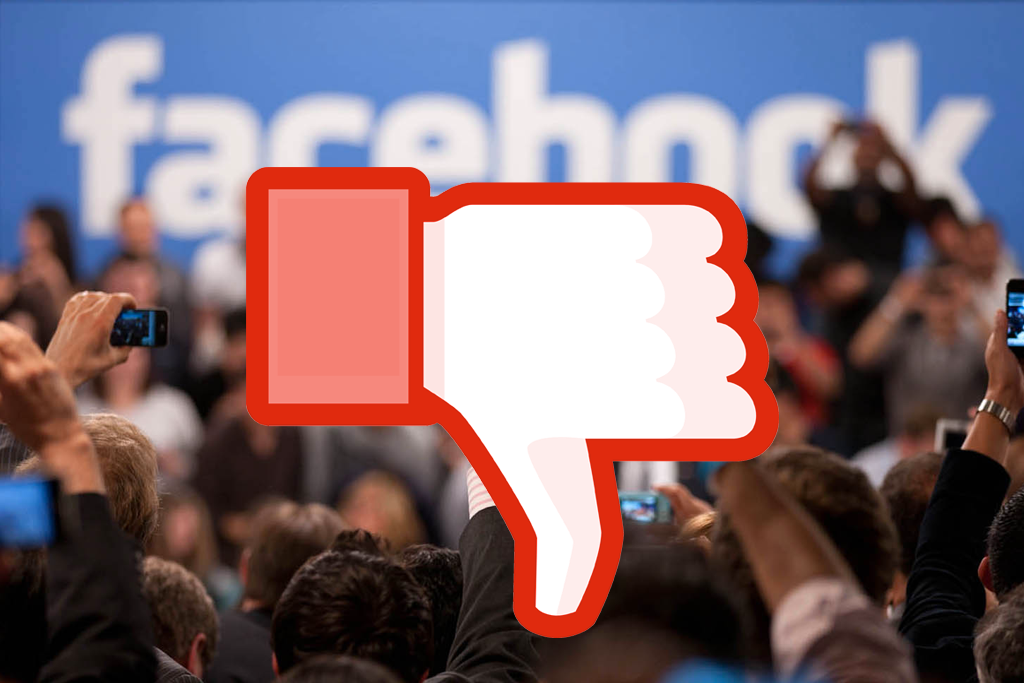So Is It Time To Delete Facebook? Here’s Everything You Need To Know
Is it worth sacrificing your privacy for event invitations?

This morning, Facebook founder Mark Zuckerberg generously took the time to weigh in on the scandal enveloping his shady social media company.
Quick recap on that scandal if you missed it: Facebook is in hot water after an investigation revealed its lax data-sharing settings allowed a company called Cambridge Analytica to obtain the personal data of around 50 million users, mostly without those users’ consent or awareness, and use it to influence elections.
This morning Zuckerberg, the founder and CEO of the social media giant, said the company is going to try to do better on that front. “We have a responsibility to protect your data, and if we can’t then we don’t deserve to serve you,” he wrote in a very long post detailing what Facebook has done so far to protect users’ data, and the further steps they’re planning on taking in future.
The full post seems like a pretty reasonable response, until you consider that Zuckerberg and his company have taken five days to respond to the ballooning scandal, waiting until #DeleteFacebook trended on Twitter to say something. They’ve also avoided answering the most pressing questions people would like them to answer, and skimmed over all the times they’ve been very reluctant to do anything about data security in the past.
Mark Zuckerberg swaddling my data like a newborn babe. "I'll never tell anyone your father likes eggs and Sprite." Devilish wings pierce through the back of his hoodie, a children's choir is chanting backwards. "OR WILL I"
— vineyille (@vineyille) March 21, 2018
Is It Time To Delete Facebook?
So, should you be deleting Facebook? More than a few people seem to be seriously considering this option. #DeleteFacebook trended on Twitter yesterday, and even Cher’s on board.
2day I did something VERY HARD 4 me.Facebook has helped me with my Charity, &there are amazing young Ppl there.I have a special friend (Lauren)who I Respect & Admire,but today I deleted my Facebook account .
I Love My????.
I Believe….There are Things MORE”IMPORTANT”THAN??— Cher (@cher) March 21, 2018
But let’s be real, Cher can do anything. What about everyone else?
The short answer here is that while deleting Facebook would be extremely peaceful and also help stop Facebook specifically from messing with your data, it’s probably not a practical option for the vast majority of us. Most of us rely on Facebook for quite a lot these days — not just for messaging and invites to parties, but also as a way to log in to a bunch of other sites.
In short, if it’s possible for you to delete Facebook, we salute you. If you’re trapped in its clutches forever, here are your other options:
How Do I Keep Using Facebook But Stop My Data Being Mined?
If you’re going to keep using Facebook, now’s the time to take a long, hard look at which apps have access to your data, and probably delete a bunch of them.
By apps, we mean everything you’ve given permission to access your Facebook account over the years. That’s stuff like Tinder and Spotify, but also Words With Friends, and all those personality quizzes you’ve done over the years. Depending on how long you’ve been using Facebook, there might be hundreds of these still connected to your account.
There’s a good guide on how to find out which apps still have access and what they can see here, along with instructions on how to delete them if you no longer use or trust them. When you’re installing apps in future, keep this in mind, and remember to carefully read those screens that list the things you’re giving that app permission to see.
And if you’re wondering why it’s so hard to find and modify these settings on Facebook, the Electronic Frontier Foundation have an interesting article on that here.
Remember That This Goes Way, Way Beyond Facebook
While this week’s scandal has centred on Facebook, many other sites and services also collect data about you all the time. Whenever you’re installing apps or signing up to services, it’s worth paying attention to the permissions they’re asking for, and the privacy settings available. If there’s an app you use a lot, search its name and “privacy settings” to find out how to adjust them.
It’s also worth noting that various websites, including Facebook, track users around the internet through scripts embedded on websites. How this works is complicated, but browser plugins like Privacy Badger, Ghostery and various ad blockers can help you block sites from doing this. They also display a little list of the trackers present on different webpages you visit, which can be pretty illuminating (or sometimes just terrifying).